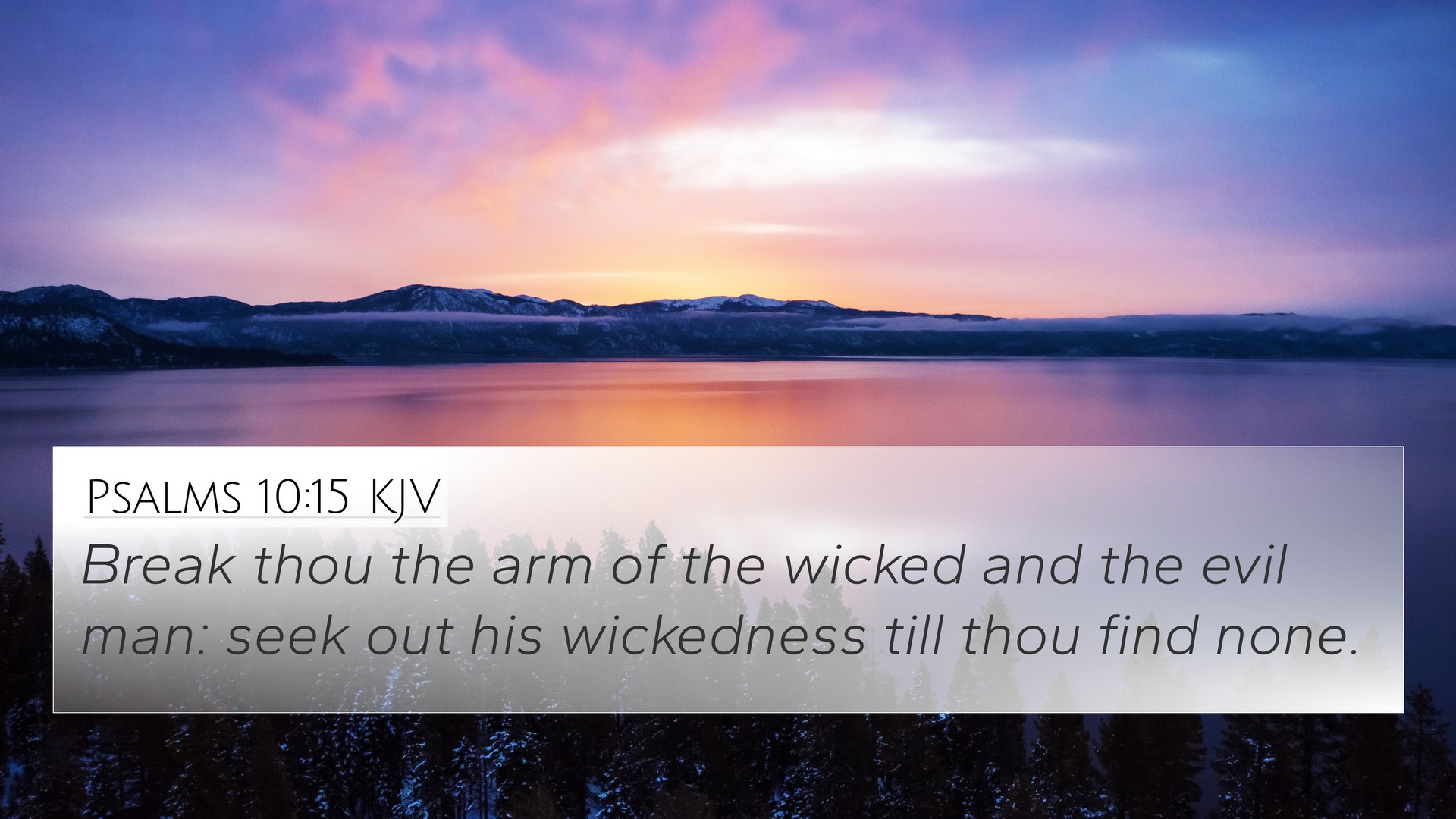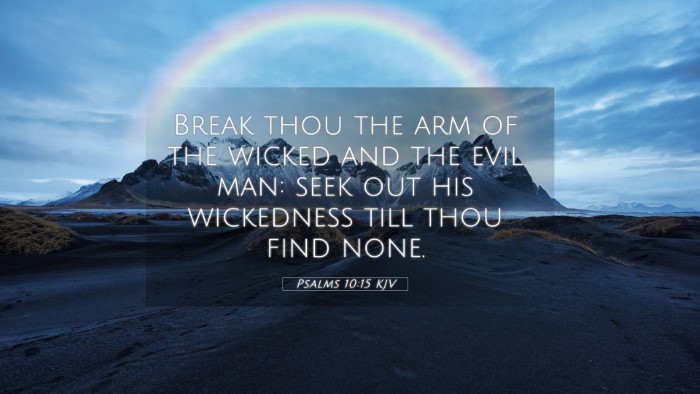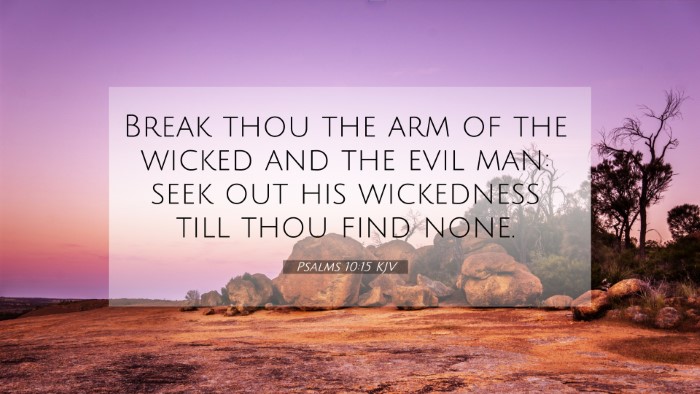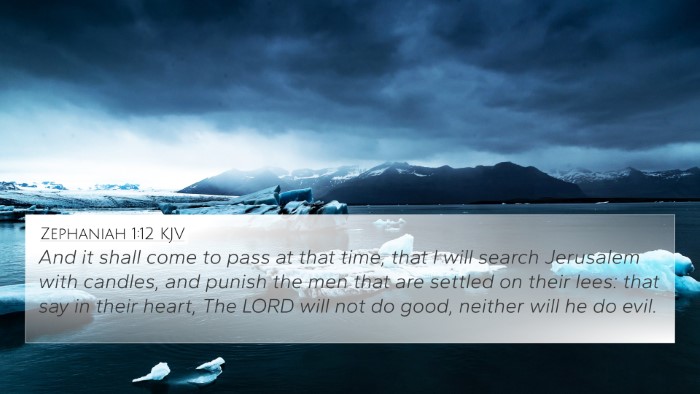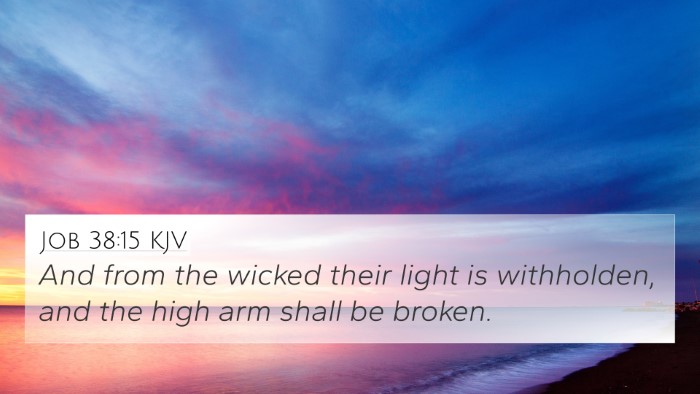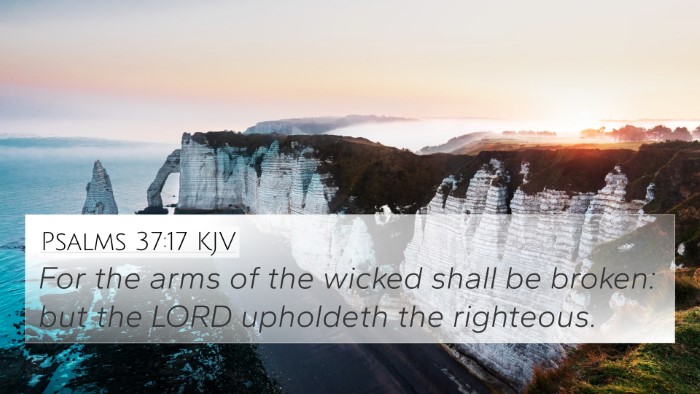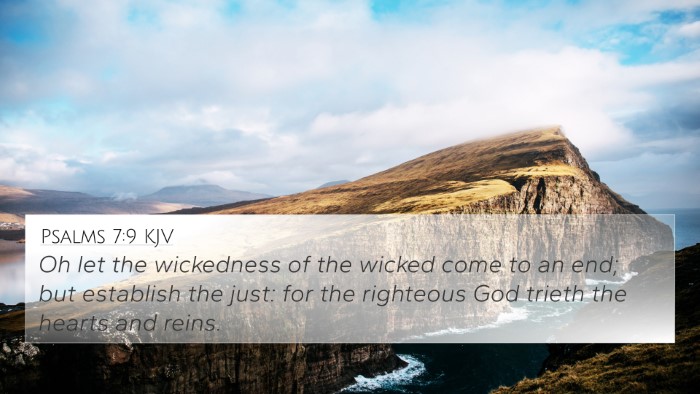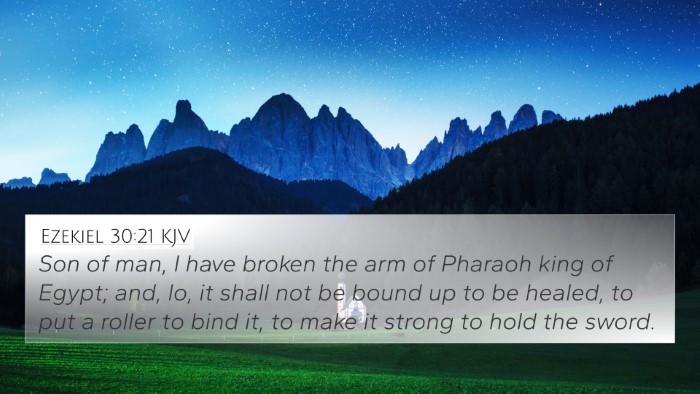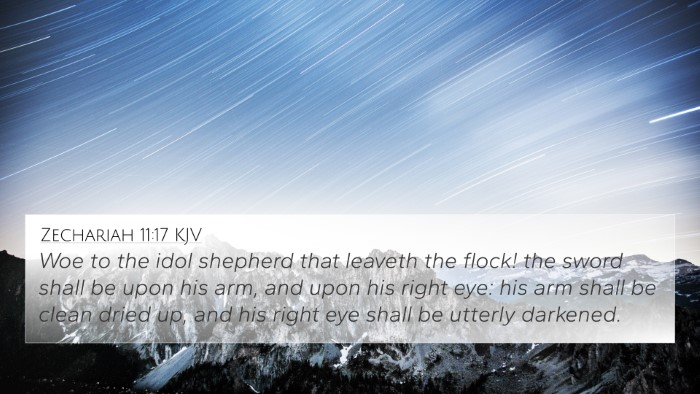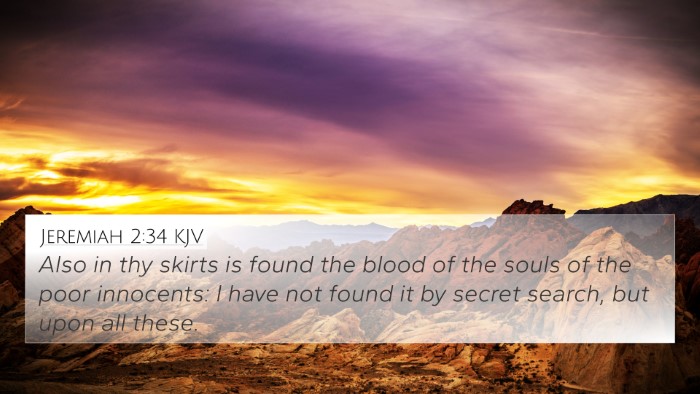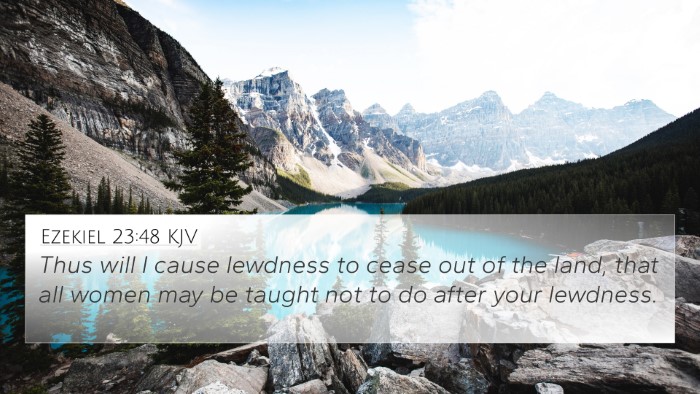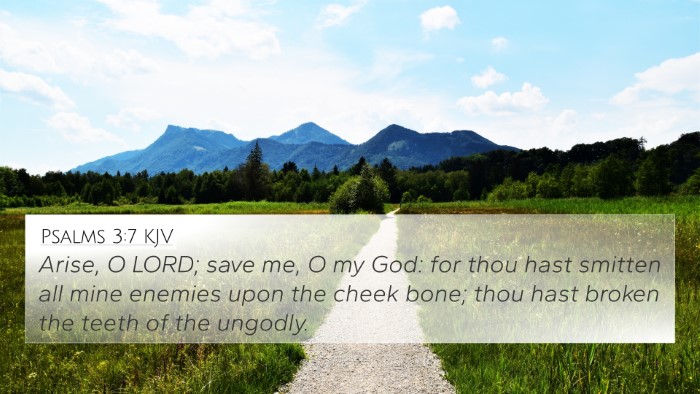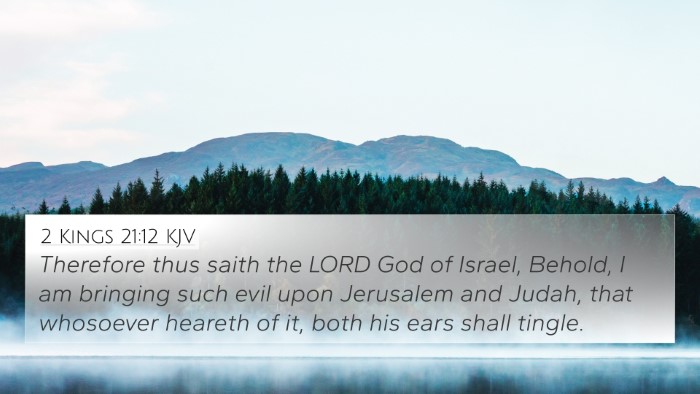Psalms 10:15 - Verse Meaning & Commentary
Psalms 10:15 states: "Break the arm of the wicked and the evil man; seek out his wickedness until You find none."
This poignant request encapsulates the psalmist's plea for divine justice against those who perpetrate evil.
In this verse, the psalmist appeals to God for intervention in the face of injustice and wrongdoing by the wicked.
The “arm” metaphorically represents the power and strength of the wicked. By asking God to "break" this arm, the psalmist seeks to render the enemy powerless and unable to commit further acts of evil.
Commentary Insights
-
Matthew Henry:
Henry emphasizes that the psalmist's prayer is rooted in a deep understanding of God’s sovereignty
and authority over human affairs. The phrase "break the arm of the wicked" reflects a desire for God to exert His power in the world to establish righteousness and order.
-
Albert Barnes:
Barnes expands on the notion of "seeking out wickedness." He interprets this as an indication that God's justice will ultimately prevail. The grinding down of an evil man is necessary for the establishment of God’s kingdom.
-
Adam Clarke:
Clarke draws attention to the intensity of the psalmist's plea. The urgency in the request illustrates the deep sorrow and humiliation often felt when confronted by evil.
He suggests that the “wicked” here can also represent nations or larger entities that oppose God’s people.
Biblical Connections
Psalms 10:15 connects with multiple other scriptures, reinforcing the themes of divine justice, the empowerment of the righteous,
and the ultimate fate of the wicked. Below are notable cross-references:
- Psalms 37:17: "For the arms of the wicked shall be broken: but the LORD upholdeth the righteous."
- Psalms 73:17: "Until I went into the sanctuary of God; then understood I their end."
- Proverbs 11:21: "Though hand join in hand, the wicked shall not be unpunished: but the seed of the righteous shall be delivered."
- Isaiah 26:10: "Let favor be shown to the wicked, yet will he not learn righteousness."
- John 16:33: "In the world ye shall have tribulation: but be of good cheer; I have overcome the world."
- Revelation 21:8: "But the fearful, and unbelieving, and the abominable, and murderers, and whoremongers, and sorcerers, and idolaters, and all liars, shall have their part in the lake which burneth with fire and brimstone."
- Romans 12:19: "Dearly beloved, avenge not yourselves, but rather give place unto wrath: for it is written, Vengeance is mine; I will repay, saith the Lord."
Thematic Connections
This verse encapsulates the themes of justice, oppression, and divine retribution.
It highlights the human condition of suffering under evil while pointing to a faith that believes in God’s ultimate victory over wrongdoing.
The call to “seek out wickedness until You find none” also emphasizes the belief in the comprehensive nature of God’s justice.
Cross-Referencing Biblical Texts
Understanding the connections between Psalms 10:15 and other scriptures provides a broader context for interpreting its meaning.
Utilizing tools for cross-referencing, such as a Bible concordance or Bible cross-reference guide, can enhance one’s understanding of biblical themes and motifs.
Engaging in cross-reference Bible study unveils how themes of divine justice are woven throughout both the Old and New Testaments.
Practical Applications
When faced with injustice, believers can take comfort in the assurance that God hears their cries and will act in His timing.
Reflecting on the themes present in Psalms 10:15 encourages a stance of faith and hope, even in the midst of adversity.
As you study, consider how to use Bible cross-references to deepen your understanding of similar themes throughout scripture.
Engage in a comparative study of passages to see how different authors address the same issues of wickedness and God's justice.
Utilizing comprehensive Bible cross-reference materials can facilitate a more robust understanding for sermon preparation or personal reflection.
